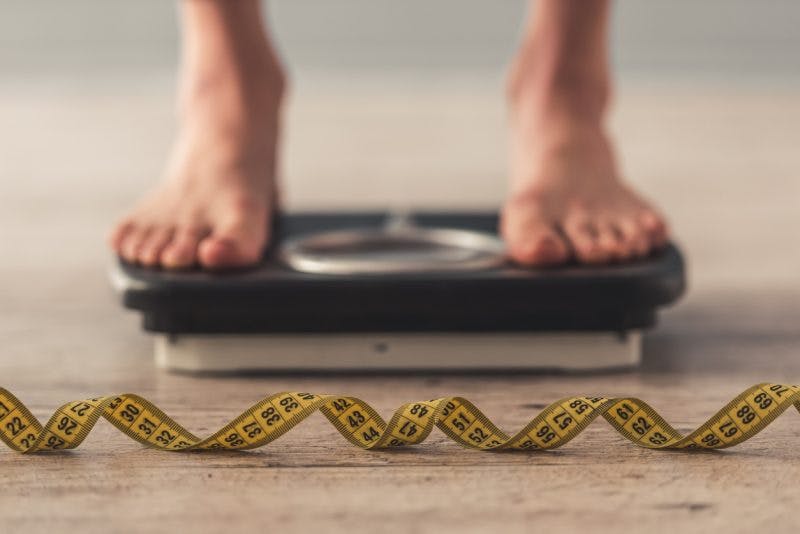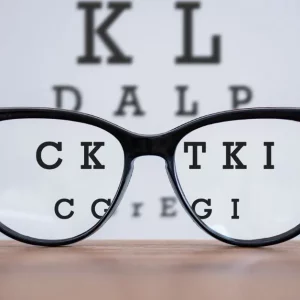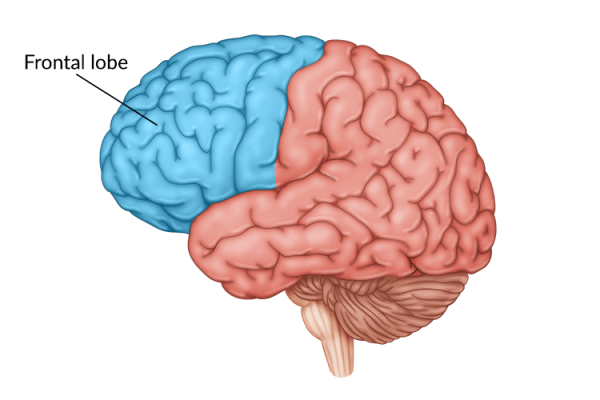Weight changes are quite common after a brain injury. While some people can lose too much weight due to damage in their brain, others might experience weight gain after brain injury.
You’re about to learn the causes of excessive weight gain after brain injury and what you can do to counter it.
Causes of Weight Gain After Brain Injury
Weight management is a serious concern in patients with traumatic brain injury (TBI.) In fact, one study that assessed data from over 7,000 TBI patients, found that 23% were classified as obese, and 36% were overweight.
Researchers have determined that eating disorders may be at the root of weight gain after a brain injury. The main causes of these eating disorders are:
- Hyperphagia. This refers to an excessive level of hunger and thirst. These cravings do not go away if you eat more food. There are many possible causes of hyperphagia including stress, hormonal changes, medication, and diabetes.
- Executive dysfunction. This is caused by damage to the parts of the brain in charge of judgment and impulse control. When executive functioning is impaired, the person will have trouble making healthy decisions.
- Hypothalamus damage. Another possible cause of weight gain after brain injury is damage to the hypothalamus. The hypothalamus regulates a person’s appetite and lets the body know that the stomach is full. When it becomes damaged, an increase in appetite can occur.
- Pituitary dysfunction. Finally, one of the most common causes of weight gain after brain injury is pituitary dysfunction. The pituitary helps regulate your body’s hormone levels. Without the right hormones, a person’s appetite can become dysregulated. In addition, pituitary dysfunction can slow the body’s metabolism. This can cause you to gain weight even if you are not eating more.
Fortunately, by addressing these underlying causes, it is possible to return to a normal weight after brain injury.
Complications of Weight Gain After Brain Injury
Too much weight gain after a brain injury can lead to serious chronic health conditions. Some of the most common include:
- High blood pressure
- Heart failure
- Diabetes
In addition, seizure frequency in TBI patients often increases with higher body weights. Therefore, it is crucial for brain injury survivors to learn how to manage their weight and improve their eating habits.
We’ll discuss some ways to do that in the section below.
Weight Management Tips After Brain Injury
To help you achieve a healthy weight after brain injury, first consult with your physician to understand any physiologic changes mentioned above, that may be contributing to your weight gain after brain injury. It may be that managing your thyroid or pituitary functions medically will help your metabolism.
However, in most cases, in addition to medication adjustments, lifestyle changes are the best way to improve weight management. This can be difficult, as there are often multiple factors that can increase your appetite after TBI.
Below are simple tips effective for all people which we have tailored especially for someone with any type of brain injury.
1. Stay Active
Most weight gain following brain injury is due to lack of activity. This usually happens because brain injury increases fatigue. However, it’s crucial to stay active during TBI recovery.
Modifying your daily tasks in a way that requires more energy will increase your activity levels. A simple example of this is parking farther away from your destination, so you have to walk a distance to get inside. Consider your specific activities of daily living and how you can modify those to be more physically challenging and boost your metabolism
Exercise is key to boosting your metabolism. Find pleasurable activities that raise your heart rate so you are breathing heavy or sweating. Exercise is known to help reduce fatigue in most cases of TBI and has a known cognitive effect as well. Research indicates that moderate exercise can actually improve cognitive recovery in patients with head injuries.
Some examples of activities you can do to stay active after brain injury include:
- Walks around your neighborhood
- Short bike rides
- Gardening
- Therapy exercises for brain injury recovery
Again, as long as you elevate your heart rate and burn some calories you will be improving your health in more ways than one.
2. Try the recovery-boosting ketogenic diet
Changing your diet is one of the most effective ways to lose excess weight. A popular diet that can help you prevent weight gain after brain injury is a ketogenic diet.
A keto diet is a great way to lose weight, but also is especially helpful for brain injury patients.
That’s because ketones, which your body produces when on the diet, are one of the few molecules that can cross the blood-brain barrier. This means they can be a great source of energy for your recovering brain.
Be sure to consult with your doctor before starting the keto diet and if given the green light, adhere strictly to the diet. Failure to do so can exacerbate poor health conditions like high cholesterol and obesity.
3. Address Your Mental Health
Stress, depression, and anxiety can increase your appetite and cause weight gain. These emotions are also extremely common after a brain injury.
Therefore, to manage your weight, it’s important to take care of your mental health. If you struggle with depression after brain injury, you may need to make an appointment to see a psychologist.
Psychologists can help you become more aware of emotional problems that may be contributing to your weight gain. For example, they might help you discover that stress and sadness trigger your poor eating habits.
Your therapist can also teach you different ways to cope, such as mindfulness, or exercise, or many others. In addition, they may help you to understand yourself better and therefore be able to care for yourself better.
By improving your mental health, you might find your appetite returning to normal levels. This will help you lose extra weight.
Preventing Weight Gain After Brain Injury
Excessive weight gain after brain injury can cause serious health issues. The most common causes of weight gain following a TBI are hyperphagia, executive dysfunction, and hormonal problems. It is good to understand from your doctor if you have any of these effects from your TBI.
By addressing underlying problems, TBI patients can prevent unhealthy weight gain. Making healthy lifestyle changes will always help people lose extra weight despite any physiological changes from the TBI.
Finally, communicate frequently with your doctor about your weight. There are even some new medications that are designed specifically for weight loss. While you should continue to eat healthy and stay active, sometimes these actions are not enough. In those cases, certain medications may be useful.










